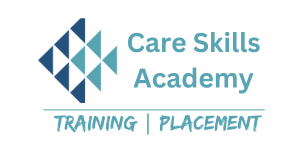The automobile industry has always been a significant player in the global economy, providing countless job opportunities and contributing to technological advancements. As vehicles become increasingly complex, the demand for skilled automobile repair technicians is growing. Enrolling in an automobile repairing course can open the door to a rewarding and lucrative career. In this blog, we will explore the benefits of pursuing an automobile repairing course and what you can expect from such a program.
Understanding the Need for Skilled Technicians
Modern vehicles are more advanced than ever, featuring a mix of mechanical, electrical, and computer systems. This complexity requires technicians to have a deep understanding of various components and how they work together. Skilled technicians are essential for diagnosing and fixing problems efficiently, ensuring that vehicles run safely and reliably. With more cars on the road than ever before, the demand for qualified repair professionals continues to rise, making automobile repairing a stable and promising career choice.
What to Expect in an Automobile Repairing Course
An automobile repairing course typically covers a broad range of topics to equip students with the necessary skills. Here’s what you can expect to learn:
- Basic Engine Repair: Understanding engine components and their functions is fundamental. Courses will teach you how to disassemble, inspect, and reassemble engines, focusing on identifying common issues and performing necessary repairs.
- Electrical Systems: Modern vehicles are equipped with sophisticated electrical systems. Learning about wiring, circuits, batteries, and alternators is crucial for diagnosing electrical problems. Courses will cover the basics of automotive electrical systems, how to use diagnostic tools, and troubleshooting techniques.
- Fuel Systems: Understanding fuel injection systems, carburetors, and fuel pumps is essential for repairing and maintaining a vehicle’s fuel system. Courses will teach you how to diagnose and fix fuel system problems, ensuring that engines run efficiently.
- Transmission and Drivetrain: Courses will cover the operation and repair of manual and automatic transmissions, clutches, differentials, and other drivetrain components. This knowledge is vital for ensuring that power is transmitted effectively from the engine to the wheels.
- Brake Systems: Safety is paramount in automotive repair. Courses will provide in-depth knowledge of brake systems, including disc brakes, drum brakes, and anti-lock braking systems (ABS). You’ll learn how to inspect, repair, and replace brake components.
- Suspension and Steering: Understanding how a vehicle’s suspension and steering systems work is critical for maintaining control and ensuring a smooth ride. Courses will cover shock absorbers, struts, steering linkages, and alignment procedures.
- Diagnostic Skills: The ability to diagnose problems accurately is a key skill for any technician. Courses will teach you how to use diagnostic tools and software to read error codes, analyze data, and pinpoint issues quickly.
Hands-On Experience
One of the primary benefits of an automobile repairing course is the hands-on experience you’ll gain. Working directly with vehicles in a workshop setting allows you to apply the knowledge you’ve learned in the classroom. This practical experience is invaluable, helping you build confidence and proficiency in your skills. Many courses also offer internships or apprenticeships with local repair shops, providing real-world experience and networking opportunities.
Career Opportunities
Completing an automobile repairing course can lead to various career paths. You can work as an automotive technician in repair shops, dealerships, or service centers. Some technicians specialize in specific areas, such as engine repair, transmission repair, or electrical systems. With experience, you might choose to open your own repair shop or advance into supervisory or management roles. Additionally, ongoing technological advancements create opportunities in emerging fields like electric vehicle maintenance and hybrid systems.
Conclusion
Enrolling in an automobile repairing course is a smart investment in your future. As vehicles continue to evolve, the need for skilled technicians will only grow. These courses provide a comprehensive education, combining theoretical knowledge with practical skills, preparing you for a successful career in the automotive industry. Whether you are passionate about cars or simply seeking a stable and rewarding profession, an automobile repairing course can set you on the path to success.
4o

